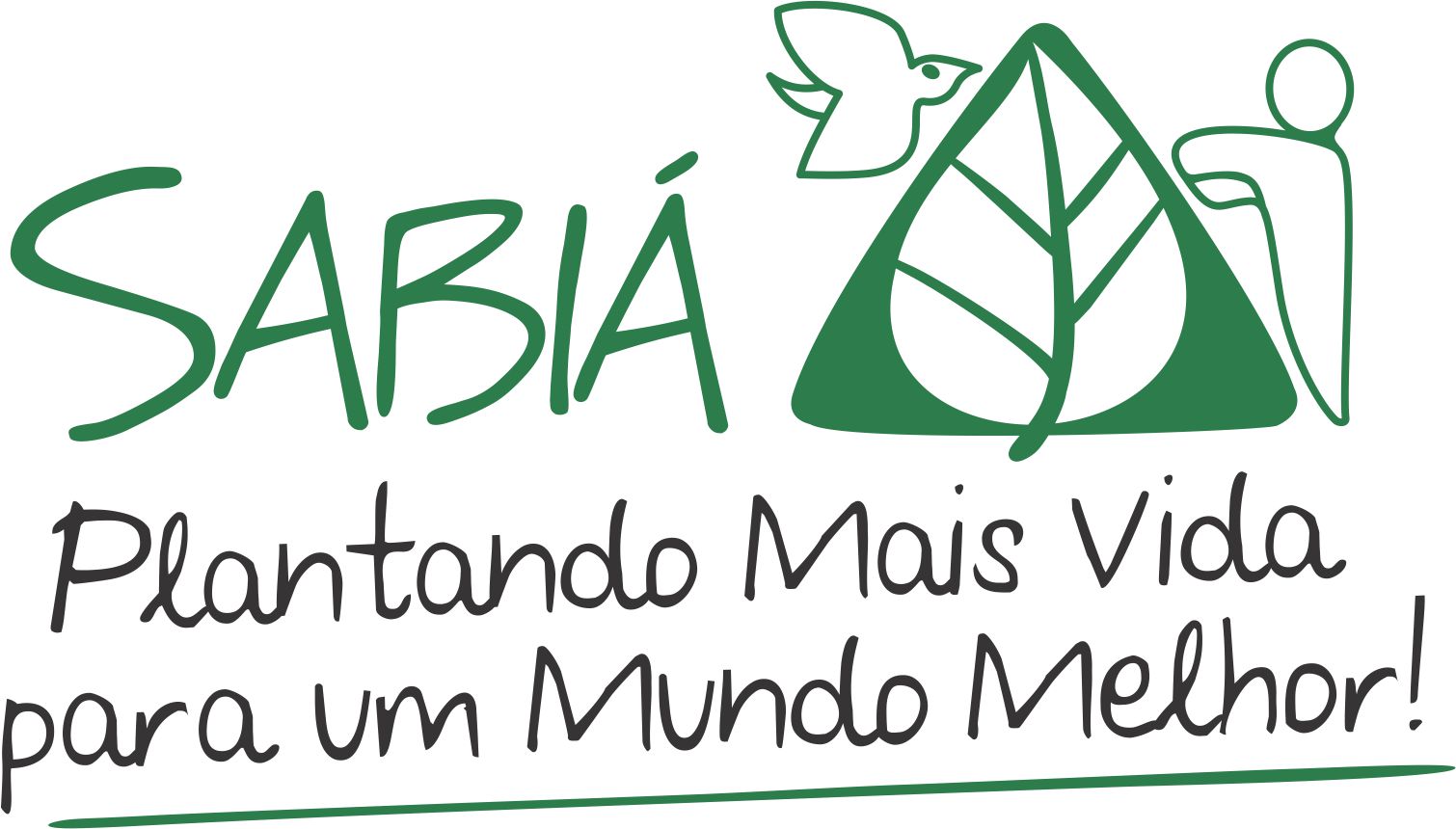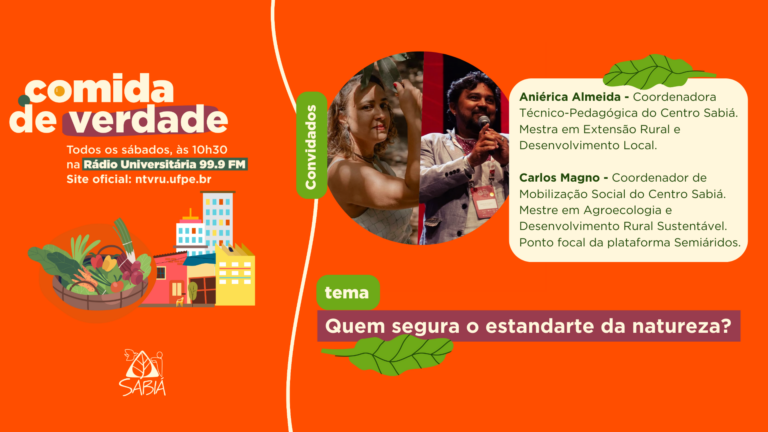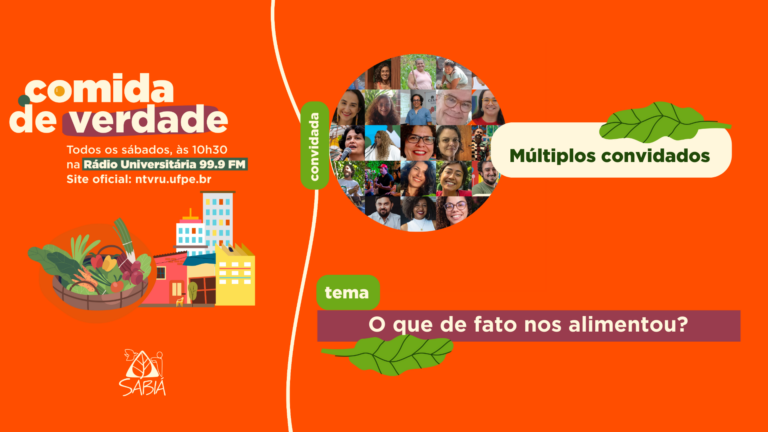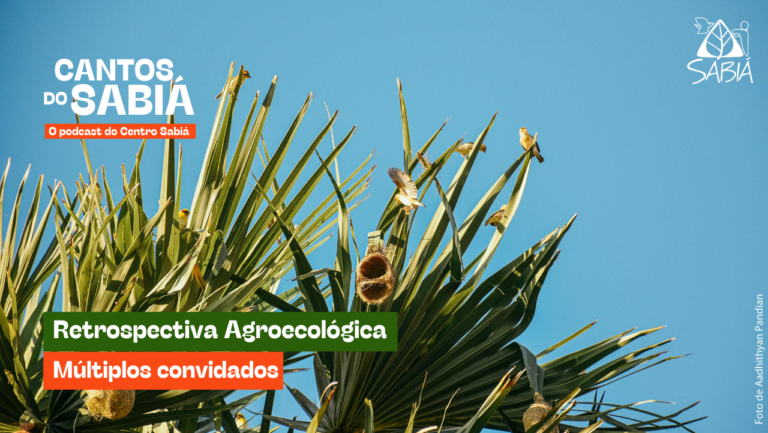31 years of many seeds planted!
Eduardo Amorim and Rosa Sampaio
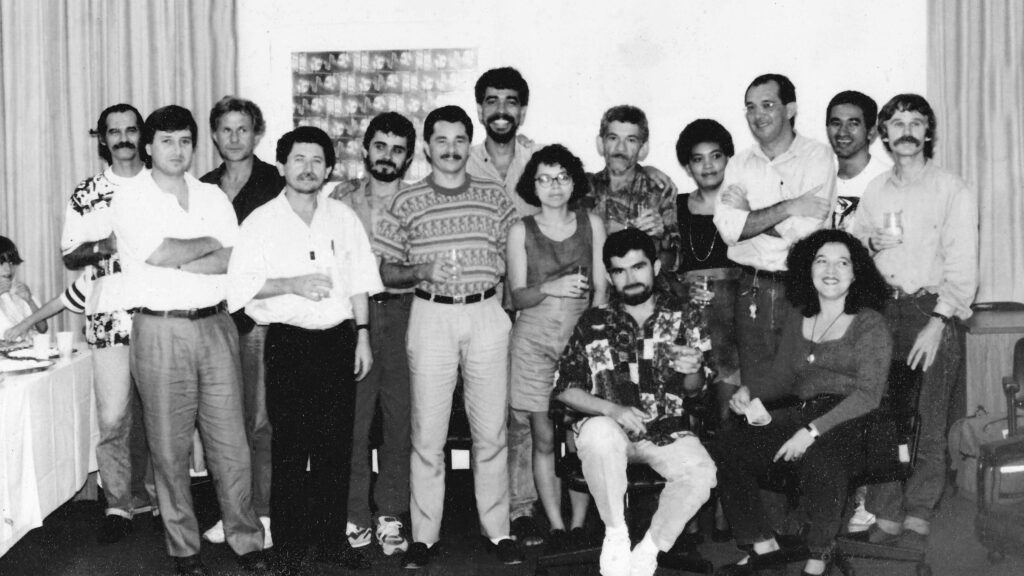
The Sabiá Center was born at a time when little was being said about many of the issues that are now being discussed in the most important international forums. In these 31 years, we want to remember the pioneers of agroforestry in Pernambuco, the agroecological fairs, the teachers and trainers who developed our methodologies and a journalist who wrote for Dois Dedos de Prosa since before the name and statute of our organization were formalized.
We have a lot to build on, but we only got here because people like Jones Severino, Vanderlucia Maria da Silva, Aurenice Lima and Leozina Barbosa taught us to fight with a smile on our faces and joy in our hearts. Before we were sure of the effects of climate change or had the courage to face up to some of the challenges facing us, we met people who inspire us to this day.
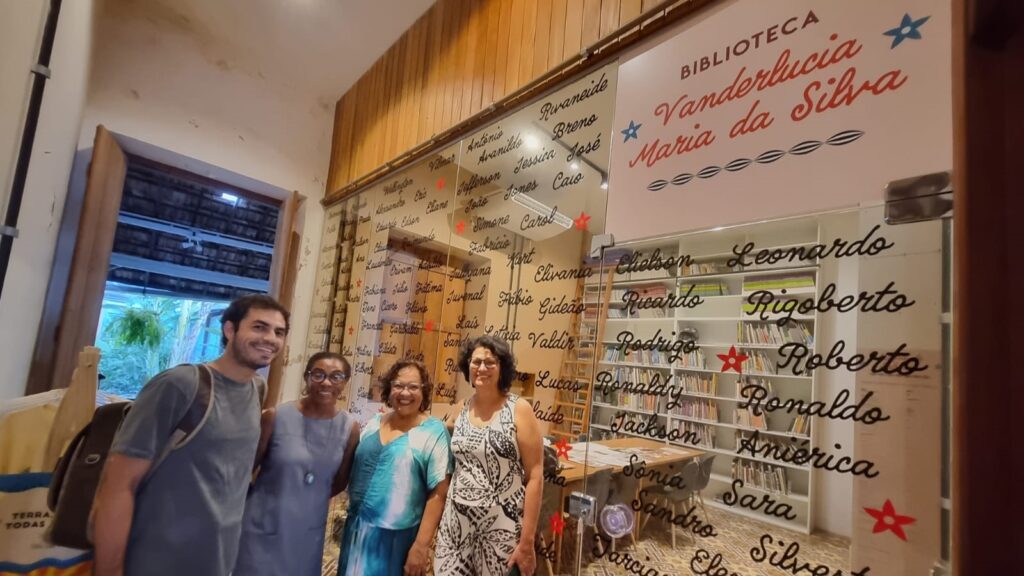
Vanderlucia Maria da Silva
Founding partner of Centro Sabiá, Vanderlucia was a journalist, critic of the concentration of media in the big networks, defender of popular communication, mother and continued to defend human rights and a better world until the day of her departure. Vanderlucia was delighted, but her fight remained!
Our library at the headquarters lovingly pays homage to Vanderlucia, as well as having a sticker at the entrance that remembers each person who has passed through the Sabiá nest. The names stamped on the door remind us of the importance of each person in transforming so many lives so far.
“During the pandemic, we dreamed that we wanted to reactivate the library, so that people could access it, because it is a heritage not only of the Sabiá Centre[…] The library is named after Vanderlucia, who brought communication into Sabiá, from the perspective we believe in, a communication that humanizes people. Sabiá’s communication is at the heart of what we do.” Carlos Magno, our Social Mobilization Coordinator, highlighted this during the inauguration of the space.
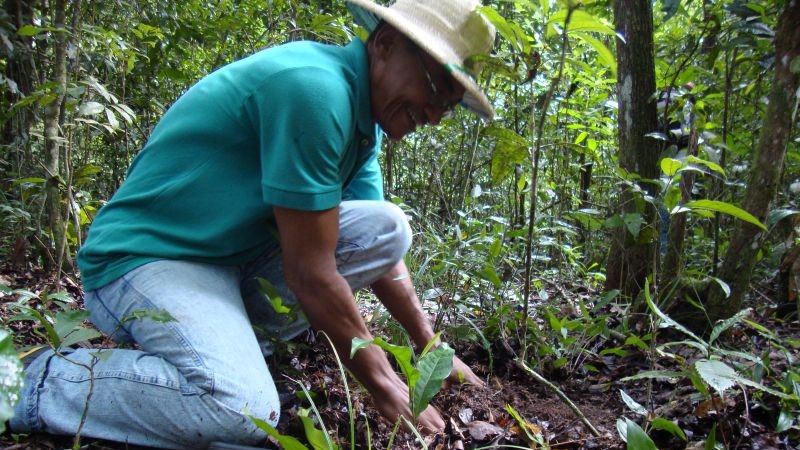
Jones Severino Pereira
Almost every Recife resident who passed through the Rede Espaço Agroecológico’s Gracias market in its first two decades will remember Seu Jones. He had a joke for every customer. If Lenir Pereira’s spice marked the construction of that space, his good humor gave agroecology another flavor. But more than just a farmer and market trader, he was also a teacher.
Some will remember that Estrada das Ubaias is a street that resembles an Atlantic Forest plant, others that the açaí was brought to Pernambuco by a Sabiá professional who had been to the Amazon. Of all the trees that Mr. Jones has planted, including the Espaço Agroecológico Network itself, perhaps the love of passing on knowledge about agroforestry has been the most fruitful.
Yes, he deserves many tributes, such as the naming of the Jones Severino Pereira Agroforestry School. In 2022, with the support of the German organization MISEREOR, Centro Sabiá implemented the first edition of the Jones Severino Pereira Agroforestry School, in tribute to the farmer, who died in 2017, for his legacy.
The action took place in three regions of the state, the Sertão, Agreste and Zona da Mata Sul, training around 90 farmers in six classes, with 15 participants each, as well as guests, such as some partners from the regions and families from other projects with already consolidated agroforestry areas.
An important didactic element of the course is the appreciation of the pedagogical dialogue between theory and practice, the exchange of experiences between farmers and the use of pedagogical tools such as the “Triangle of Life”, species stratification, ecological succession in time and space. The school values participatory methodologies, with debates based on Paulo Freire’s “transformative action-reflection-action”.
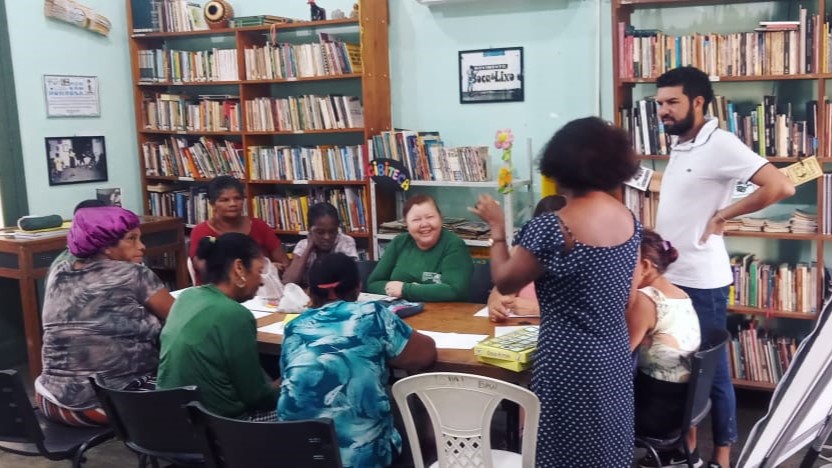
Leozina Barbosa and Aurenice Lima
Paulo Freire was also the inspiration for one of the newest initiatives supported by the Sabiá Center. Volunteers Leozina Barbosa and Aurenice Lima, professors at UPE and UFPE respectively, were delighted with the proposal for the Marias School of Urban and Peri-urban Agriculture, but were also concerned about the difficulty encountered by some students who were not literate.
Not wanting to stand still, they proposed an initiative that began this July: a literacy course for the women farmers of Horta Dandara. The result of a visit to the headquarters by a group of teachers, mobilized by one of Centro Sabiá’s frequent donors, the initiative thrills Aurenice: “First, they work in the vegetable garden they built and preserve. Then they come to literacy classes with me. That’s exactly why I became a teacher.”
The Sabiá Centre, despite being a social organization set up 31 years ago, is still surprised by initiatives that make us rethink our work and move everyone, such as the initiative by the professors from UPE and UFPE. “The Marias, housewives living on the outskirts of Olinda, have occupied unproductive land, endured floods and raised their children this way. They didn’t have the opportunity to study and today, when they are over 50, they can do so at the Peixinhos Hatchery Library,” says Aurenice.
Do you want to donate to the Sabiá Center? Find out how you can contribute!
Nothing found.

